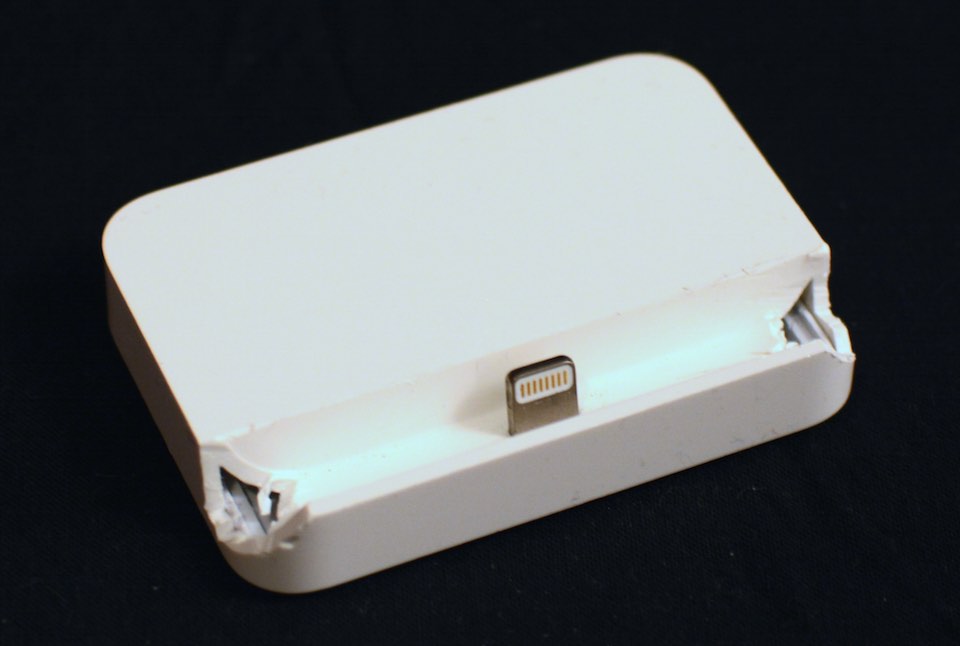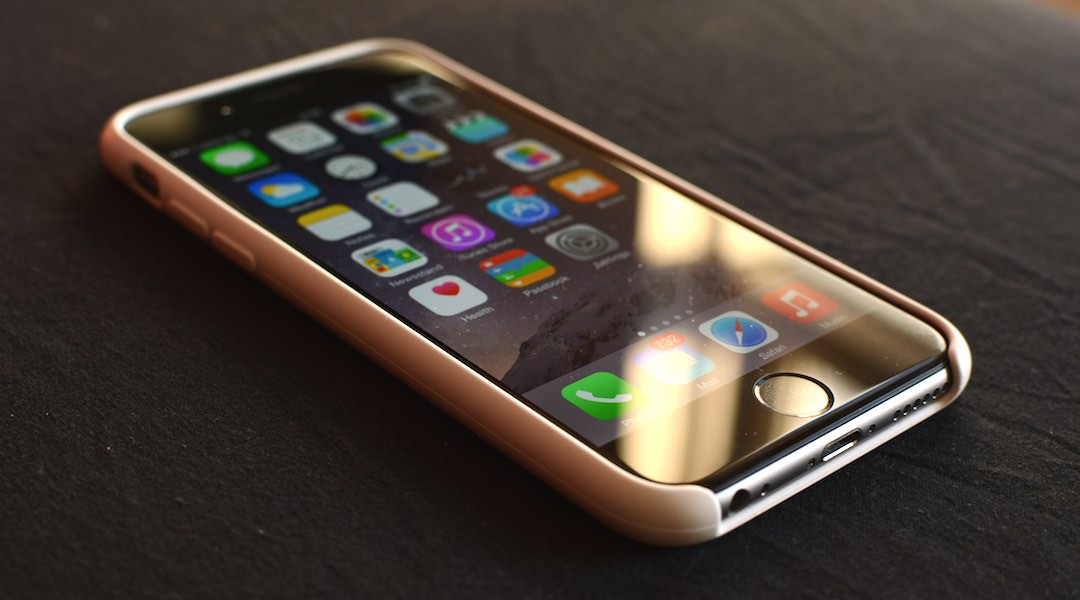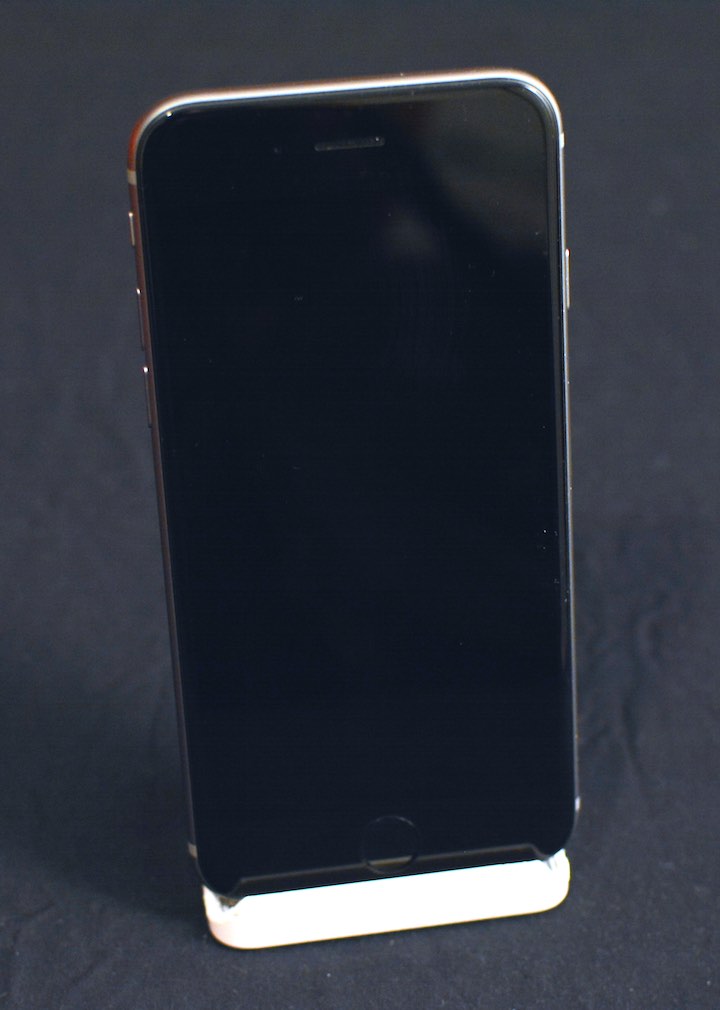A battery breakthrough would explain the Apple car
▼ The latest Apple rumor is that they're working on a car. A rumor that is easily dismissed:
The fantastic Apple Car is a fantasy.
But is it? What would it take for Apple to start making cars?
Cars are a huge market and they're very expensive. That's exactly the type of market Apple needs to enter if it wants to continue growing its already unprecedented profits. However, cars aren't very profitable for the companies that make them today. So Apple needs to bring something unique to the table to allow it to reach the margins it's grown accustomed to.
There are already very nice high-end cars, and there's just not that many people who can afford them; selling a better car for a higher price isn't going to give Apple the numbers that it needs. What Apple needs to do is make a better car cheaper, so it can be sold for a regular price but at an Apple-like margin.
The insides and outsides of a car are determined by its function and the fact that it must push through the air at a relatively high speed. There's not much that Apple can do here. Maybe Apple has come up with some new user (driver?) interface paradigm that will revolutionize driving, but somehow I doubt that.
Maybe an Apple car is going to be self-driving? Not impossible. But Google has been working on that for some time, and they use existing cars. Also, Google's driverless cars are described as "trains running on invisible tracks": they're not very autonomous, but rely on extremely detailed maps. Is Apple confident enough in its mapping abilities to think they can pull this off?
But maybe they just build a better car. Apple isn't going to improve the motors used in electric cars, simply because those are already pretty much perfect: they weigh a fraction of what an internal combustion engine weighs, run at 90% efficiency and they last pretty much forever with little or no maintenance. Most of the other electronic and mechanical parts are small potatoes.
However, there is one thing in an electric car that could be improved: the battery. A better battery that stores more energy for the same size/weight would be a big deal. Or that can be charged faster. Or lasts longer before it has to be replaced. Or is simply cheaper.
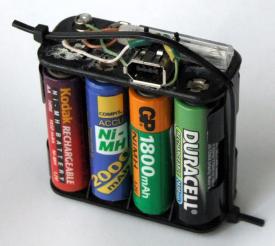
We read about research breakthroughs in battery technology all the time, but we rarely see those translate into real-world improvements. Obviously, Apple has been interested in batteries for a long time. So what if Apple has developed a significantly better battery? That's sure going to help the Apple Watch, and we could all use a bit more battery life in our iPhones.
But if you're looking to monetize a battery technology breakthrough, look no further than the electric car.
Permalink - posted 2015-02-16

 Twenty years ago, on January 16, 1995, the first episode of
Twenty years ago, on January 16, 1995, the first episode of 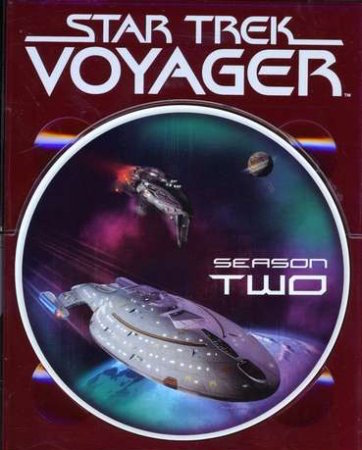 At about 250 grams a piece, this collection weighed in at 21.5 kilos, and I got rid of it when I moved to Spain. However, last week I re-bought Voyager, on DVD this time. The box set weighs 1.25 kilos and cost me € 105. At the time of this writing, you can get the
At about 250 grams a piece, this collection weighed in at 21.5 kilos, and I got rid of it when I moved to Spain. However, last week I re-bought Voyager, on DVD this time. The box set weighs 1.25 kilos and cost me € 105. At the time of this writing, you can get the  However, I was a loyal Star Trek The Next Generation viewer. I even recorded every episode on VHS tape, and I still have those tapes. (Well, I missed the last two episodes, but I got those on tape, too.) I think I re-watched them once, but now that ST:TNG is available in high definition on blu-ray, it's unlikely I'm going to revisit those home recordings. Also, TNG isn't that great. The the story lines tended to get repetitive and characters are fairly bland. I especially disliked Data.
However, I was a loyal Star Trek The Next Generation viewer. I even recorded every episode on VHS tape, and I still have those tapes. (Well, I missed the last two episodes, but I got those on tape, too.) I think I re-watched them once, but now that ST:TNG is available in high definition on blu-ray, it's unlikely I'm going to revisit those home recordings. Also, TNG isn't that great. The the story lines tended to get repetitive and characters are fairly bland. I especially disliked Data.
 I liked Voyager a lot better. First of all, there's a real mission: getting home from the delta quadrant—although they sure get side tracked a lot. But the great thing about this conceit is that Voyager actually gets to explore some unknown places, something that The Next Generation didn't really do much. The characters also work much better. Captain Janeway is a great character, warm, but also tough. Tuvok works much better than Spock or Data because the whole lack of emotions thing is no longer explored to death. And, emotions or not, he does have a sense of humor. The characters all have traits that propel stories forward organically. The desire get home before they die of old age allows them to do stupid things from time to time (as needed for the plot) for understandable reasons.
I liked Voyager a lot better. First of all, there's a real mission: getting home from the delta quadrant—although they sure get side tracked a lot. But the great thing about this conceit is that Voyager actually gets to explore some unknown places, something that The Next Generation didn't really do much. The characters also work much better. Captain Janeway is a great character, warm, but also tough. Tuvok works much better than Spock or Data because the whole lack of emotions thing is no longer explored to death. And, emotions or not, he does have a sense of humor. The characters all have traits that propel stories forward organically. The desire get home before they die of old age allows them to do stupid things from time to time (as needed for the plot) for understandable reasons.
 The biggest limitation of Voyager is that most episodes were written to allow for out-of-order watching. As such, the (life-changing) events in one episode are forgotten the next. However, there are some longer-running story lines where the crew has to deal with a certain adversary throughout a season or two. My favorite seasons are 3 - 5. Season 3 slowly leads up to the first encounter with the Borg, and then in season 4 Seven of Nine gets added to the crew. This shakes things up nicely until the writers start to spend too much time on Seven of Nine and the doctor.
The biggest limitation of Voyager is that most episodes were written to allow for out-of-order watching. As such, the (life-changing) events in one episode are forgotten the next. However, there are some longer-running story lines where the crew has to deal with a certain adversary throughout a season or two. My favorite seasons are 3 - 5. Season 3 slowly leads up to the first encounter with the Borg, and then in season 4 Seven of Nine gets added to the crew. This shakes things up nicely until the writers start to spend too much time on Seven of Nine and the doctor.
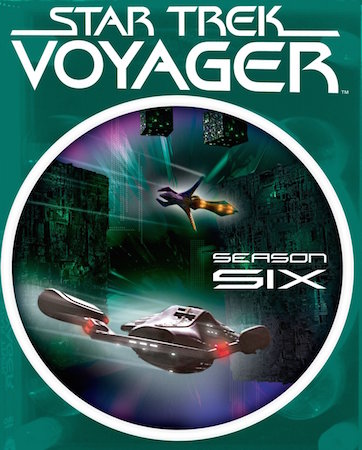
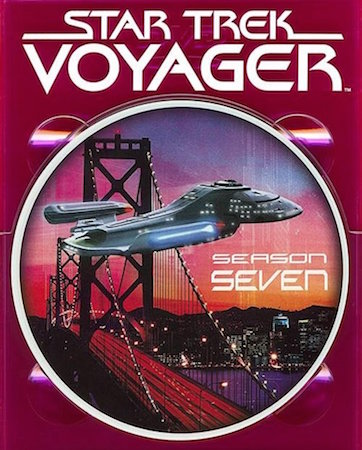 In these days of widescreen high definition TV, it takes a little getting used to to watch Voyager in 4:3 narrow aspect ratio, and of course the image isn't super sharp. The live action parts aren't too bad, though, and it helps that Voyager predates the trend to make TV and movies super dark so you can't tell what's going on. The CGI doesn't fare so well: it tends to be noticeably soft.
In these days of widescreen high definition TV, it takes a little getting used to to watch Voyager in 4:3 narrow aspect ratio, and of course the image isn't super sharp. The live action parts aren't too bad, though, and it helps that Voyager predates the trend to make TV and movies super dark so you can't tell what's going on. The CGI doesn't fare so well: it tends to be noticeably soft.
